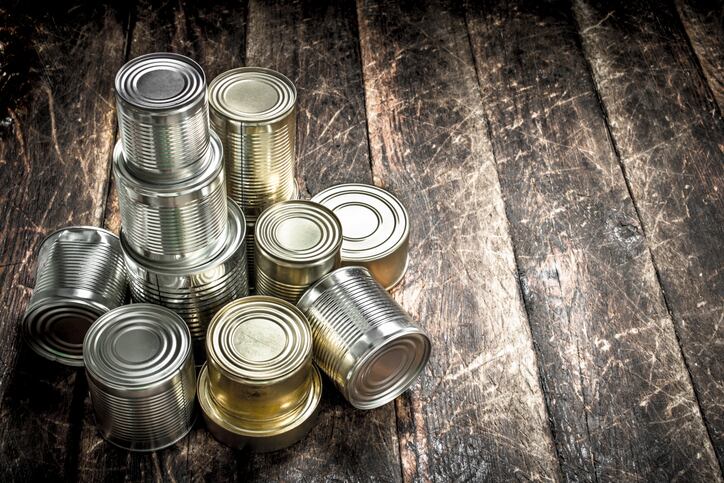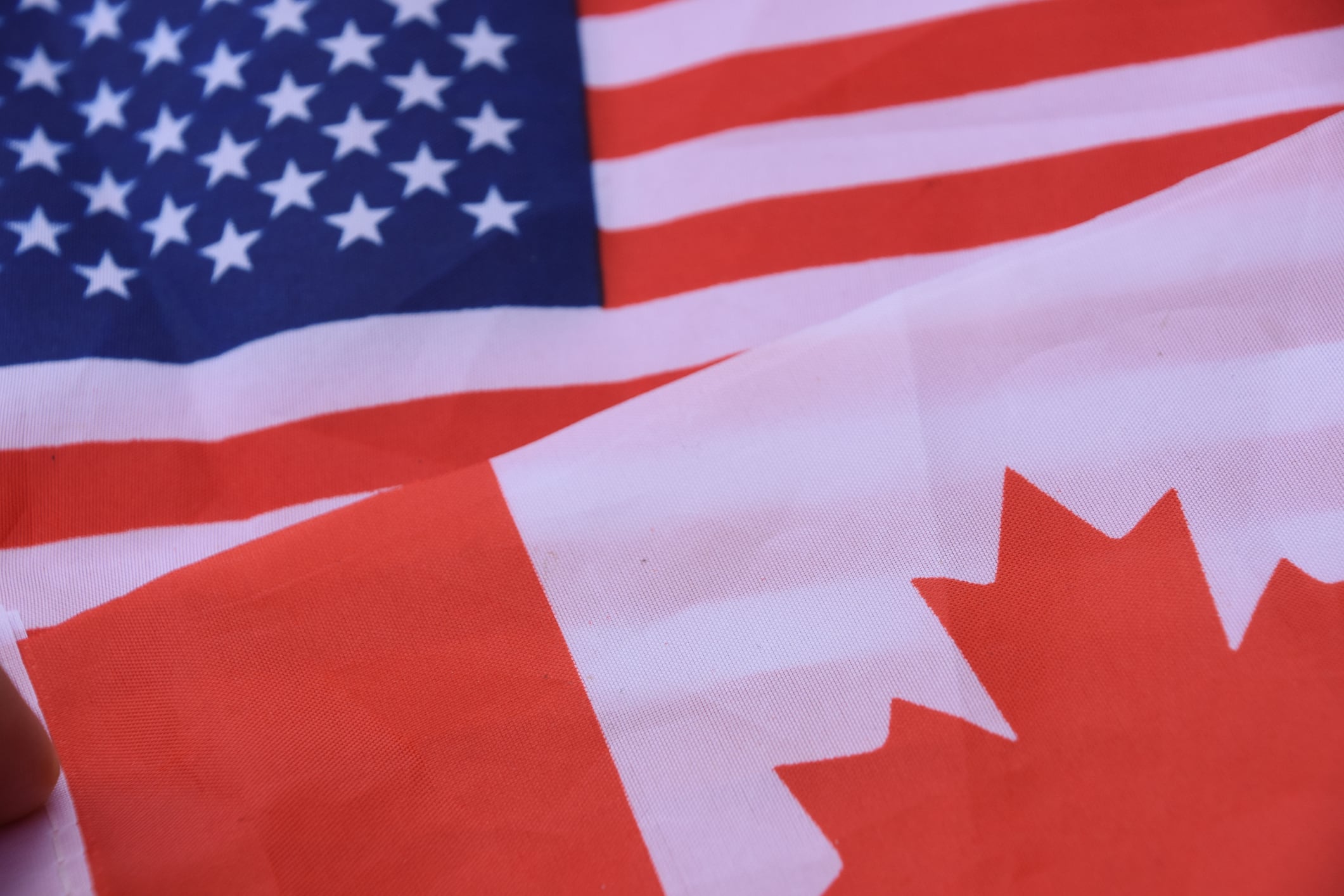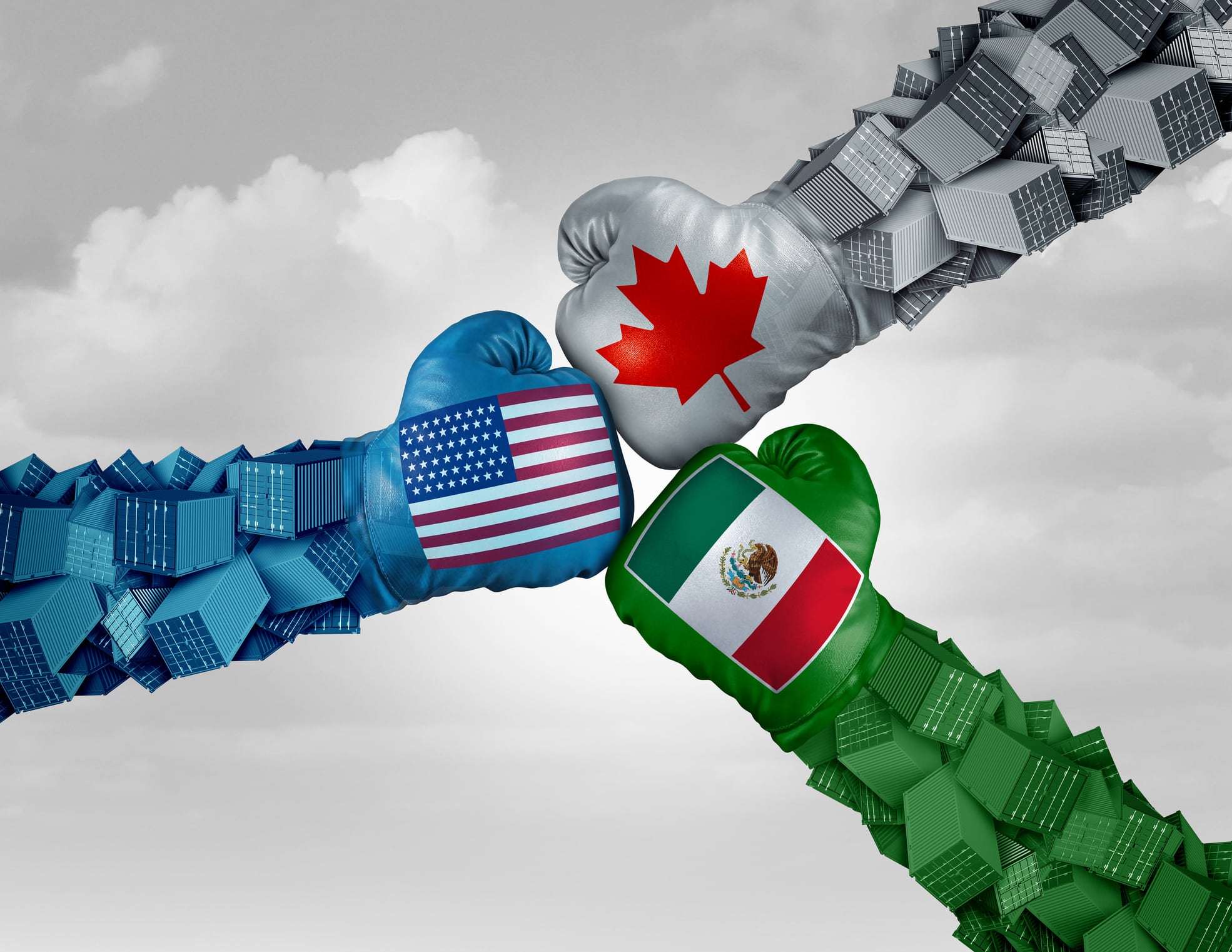The Consumer Brands Association urges the Trump administration to “fine-tune” its America First trade policy ahead of the looming July 9 expiration date for the 90-day pause on “reciprocal” tariffs or else risk undercutting the consumer packaged goods industry, which it says supports more than 22 million American jobs and contributes more than $2.5 trillion to the US GDP.
In a July 2 memo, the trade group argues that the CPG industry it represents has “always been America First” and is “committed as ever to continuing making all we can right here in America.” But, it adds, about 10% of the inputs on which it relies “fundamentally cannot be grown or made in the USA” and the threat of higher tariffs on these components could cause significant damage should the Trump administration not reach trade deals with the countries from which they are sourced.
The trade association, which represents the CPG industry, including food and beverage manufacturers, also admonishes the Trump administration not pick “winners and losers” by promoting one domestic sector at the expense of another and its workforce.
Instead, it urges the administration to “explore innovative industrial policies and facilitate partnerships” that could boost domestic production of inputs and finished products.
Reimposed tariffs ‘could significantly increase costs’
Should the pause on the Trump administration’s country-specific “liberation day” reciprocal tariffs expire on July 9, the tariffs, some in the high double-digits, could either revert to their original levels or be adjusted depending on negotiations – creating a level of uncertainty and anxiety across business sectors, including CPG, and the global governments.
The Trump administration paused on April 9 nearly all of the country-specific reciprocal tariffs that the president threatened – bringing them down a 10% baseline – to give trading partners time to negotiate new bilateral agreements.
In the past three months, the administration “has released little information on the status of the bilateral negotiations or potential trade deal terms,” and the UK remains the only finalized deal and China the only partner with a preliminary agreement in place, according to a July 1 update from the law firm Holland & Knight.
If the tariffs for the other partners are reimposed they “could significantly increase costs to import goods into the US, disrupt supply chains and impact all sectors of the economy,” the memo adds.
This would be felt most acutely in the CPG industry on about 10% of inputs that CBA says are “unavailable natural resources,” including staples like coffee, cocoa, shea and palm oil, which cannot be sufficiently produced domestically because of geographic and climate conditions.
Likewise, the trade group warns that origin-specific products, like Gruyer cheese, Vietnamese honey and other goods that rely on characteristics of specific region for their production would be “difficult to produce in the United States.”
One of the most controversial and fundamental components to many stakeholders across CPG that could be negatively impacted by tariffs is tin mill steel, warns CBA.
“The US steel industry does not produce tin mill steel in the quality or quantities needed by US can makers, leaving it only able to supply up to 30% of can makers’ demand. The current 50% tariff on steel could increase prices for consumers by as much as 15% and impact an estimated 20,000 good paying jobs,” the trade group explained.
‘The policy shouldn’t pick winners and losers’
The Trump administration’s tariffs on imported steel is designed in part to support domestic production of material, but CBA argues that in supporting the steel industry the administration risks picking domestic industry winners and losers.
“A bedrock principle of American economic thought is not having the government pick winners and losers, especially when one side would be so hugely disadvantaged by a policy decision,” it argues.
“Tariffs are intended to protect domestic manufacturers from unfair competition overseas and bad actors. However, tariffs can also have a negative ripple effect that could impact the competitiveness of US manufacturers as it relates to cost, consumer prices and domestic jobs,” it adds.
This is the case with steel vs the CPG industry, it says.
However, the trade group is quick to note the food and can manufacturers would “welcome the ability to source tin mill steel domestically.”
To do so, it urges that administration “provide incentives to make this resource available here in America.”
It explains that there is only one domestic tin mill steel manufacturer, but following the “Trump administration’s approval of the historic US Steel and Nippon Steel transition, there is an opportunity to potentially bring Nippon Steel’s longstanding tin mill steel expertise from Japan to US Steel’s operations.”
CBA says this could expand and modernize tin mill steel production.
The trade group also urges the administration to establish protections against domestic producers raising prices to meet the tariff level so that supply remains “consistently affordable and available.”
By accounting for these potential outcomes, and “fine-tuning” the US tariff approach “to recognize unavailable natural resources and facilitating an investment and incentive approach to boost American production of inputs like tin mill steel,” CBA argues the Trump administration “could deliver on the ideological promise of an America Frist Trade Policy” and still “protect thousands of US manufacturing jobs, counter grocery inflation and preserve low prices.”



